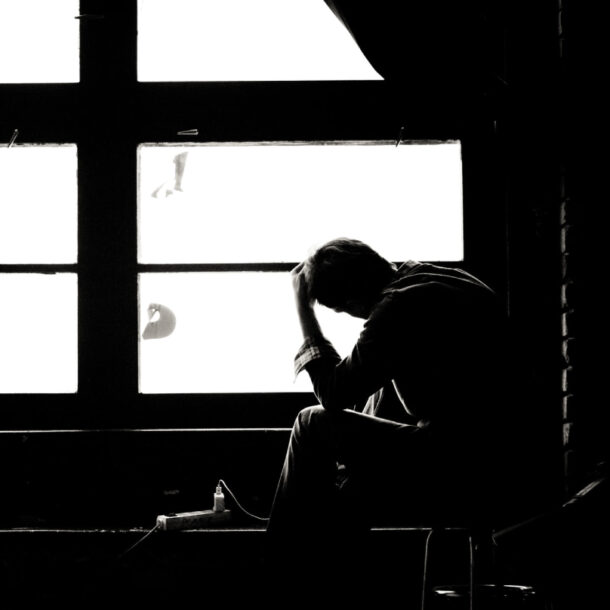What We Treat
Anxiety
Virtual Teen Anxiety Disorder Treatment
It is perfectly normal for teenagers to feel some level of anxiety. Anxiety is a normal reaction to stress, and it can help them cope with tense or overwhelming situations they experience in their day-to-day lives. Whether it is dating, athletic competition, or getting good grades in school, teens can feel a certain degree of uncertainty and apprehension. While the excessive sweating and racing heartbeat can feel overwhelming, those symptoms pass in a short period of time.
However, some teenagers experience anxiety that goes beyond the typical symptoms. The symptoms they experience linger for days, weeks, months, and even longer. The intensity of what they feel negative about affects their friendships and family relationships, and it significantly affects their quality of daily life. In these cases, parents need to seek the professional help provided by anxiety treatment centers for teens.
Roughly 19.1% of adults have had an anxiety disorder in the past year which equates to somewhere in the neighborhood of 40 million people. Among those, nearly a quarter (22.8%) had a serious impairment. Even more disconcertingly is the fact that almost a third (31.9%) of adolescents had some type of anxiety disorder as well.

An Introduction to Anxiety in Teens
Anxiety is a common mental disorder that affects teenagers across the United States. According to data supplied by the National Institute of Mental Health (NIMH), nearly 1 in 3 teenagers aged 13-18 have experienced an anxiety disorder in their lifetime. Of those who have experienced anxiety, 8.3% experienced severe anxiety. Additionally, the prevalence of anxiety and related disorders is higher in females (38%) than in males (26.1%).
There are several reasons why teens can experience significant—and even severe—anxiety. The most common reasons are the following:
- Increased Pressure to Succeed—teens today feel an increased pressure to succeed academically because of standardized testing and a general cultural emphasis on achievement. If teens feel they aren’t getting straight A’s or scoring high on the ACT or SAT, it can lead to feelings of failure, which can increase anxiety.
- Social Media—social media is pervasive in teenagers’ lives. For many teens, their self-esteem and views of the world around them are tied to social media posts. As a result, they may unfairly compare their lives to what others post.
- An Uncertain and Scary World—teenagers today are growing up in a world where school shootings, terrorist attacks, and lockdowns are more commonplace. The uncertainty and scary nature of current society can intensify the anxiety teens face.
- Self-Image—the adolescent years bring significant physical change in their bodies. These changes can bring forth discomfort, especially if they develop too quickly or too slow. If teens obsess too much about the perceived or real flaws of their bodies, it can cause great distress in their daily lives.
In addition to anxiety, teenagers can experience similar disorders such as panic disorder and phobias. A panic disorder causes severe anxiety, and those affected feel overwhelmed with feelings of impending doom. They may profusely sweat, become short of breath, experience numbness and feel chest pains. A phobia is an excessive fear of a specific object or social situation. This fear may develop from a past experience, but it is an excessive reaction that is not rational to the situation.
Let Us Help Your Family
We Work with Most Insurance









Signs of Anxiety
As a parent, spotting an anxiety disorder in your teen can be difficult. With the wide variety of physical and emotional changes that occur as they grow, the symptoms of anxiety can easily be confused with the growing pains of getting older. However, there are tell-tale signs of anxiety that your teen may exhibit. For example, your teen may experience a pervasive sense of worry that lingers for days, weeks, and even months. This worry causes them to be irritable, restless and can lead to frequent and unexplained outbursts in your teen.
Secondly, anxiety causes significant social changes. If your teen suddenly avoids activities they love or long-time friends, they may be experiencing anxiety. Your child may become increasingly withdrawn from family and friends. Thirdly, your teenager may experience physical changes such as unexplained aches and pains, gastrointestinal issues, frequent headaches, and have significant changes in their eating habits.
Additional signs of anxiety to watch for are declining school performance, increased tardiness from school, and a general feeling of being overwhelmed by their workload. Anxiety also causes teens to have difficulty falling asleep, having frequent nightmares, and not feeling refreshed after a night’s sleep.

How to Help Your Teen with Anxiety
When your teen is dealing with anxiety, they can be very vulnerable and fragile in their feelings. It is very important to show empathy and understanding as your teen is struggling with their feelings. The first question you may ask yourself is, “I wonder how to help my teen with anxiety?” The following tips are extremely beneficial in helping your teen deal with anxiety:
- Learn all you can about anxiety and how it affects your teenager. If you are online, there are many great websites that provide great information and resources that will give you the knowledge you need to better understand this condition. Some examples are the National Institute on Drug Abuse (NIDA) and the Substance Abuse and Mental Health Services Association (SAMHSA).
- In addition to online research, talk to your family doctor or mental health provider who specializes in teen mental illness. They may help to steer you to valuable community resources, support groups, and towards anxiety treatment centers for teens.
- Listen to your teen without judgment. Be empathetic and have respect for what they are feeling in the moment. It is important to listen completely and not talk over them or interrupt.
- Be sure they are getting enough sleep, are eating as healthy as possible, and are getting outside and getting some form of exercise.
- Keep the lines of communication open. Even if your teen doesn’t feel like talking, let them know you are there for them when they need you.

What to Expect in an Anxiety Treatment Center
When your child enters a teen social anxiety treatment program, experienced treatment personnel will perform a comprehensive evaluation of your child’s physical, mental and psychological health. They will ask you about your son or daughter’s general mood and anxiety level. They will also gather information about your child’s sleeping patterns, energy levels, mood, and their overall behavior. They will perform a thorough mental health evaluation to see if there may be another disorder such as ADHD, conduct, or mood disorder that could be present. Additionally, they will perform a complete medical examination to pinpoint any underlying medical condition that could negatively impact treatment. This evaluation will provide the foundation for an individualized treatment program tailored to your teen’s unique needs.
An important component of teen social anxiety treatment is therapy. Psychotherapy is a common modality used in adolescent anxiety treatment programs. Psychotherapy helps teens understand the underlying issues that drive their anxiety. Another effective therapy used is cognitive-behavioral therapy (CBT). This form of therapy identifies the negative thought patterns that feed their anxiety, and it provides them with healthy coping strategies to minimize the effects of anxiety.
Medication therapy can also be an important component of teen anxiety treatment. When used as part of a comprehensive treatment plan, medications are effective in helping teens better manage their moods and emotions. Common medications used in anxiety treatment programs for teens include the following:
- Paxil
- Zoloft
- Xanax
- Cymbalta
- Klonopin
While medications can help your child, their use should only be considered in those cases of severe anxiety. Also, these medications are powerful and have a high potential for addiction. It is very important if medications are used, it is under close medical supervision. If your child does have a substance abuse disorder in addition to their anxiety, they will need specialized care found in a dual diagnosis treatment program in the same facility.
Thrive’s Teen Anxiety Treatment
Can Help
When your teen is dealing with anxiety, they can be very vulnerable and fragile in their feelings. It is very important to show empathy and understanding as your teen is struggling with their feelings. The first question you may ask yourself is, “I wonder how to help my teen with anxiety?” The following tips are extremely beneficial in helping your teen deal with anxiety:
- Learn all you can about anxiety and how it affects your teenager. If you are online, there are many great websites that provide great information and resources that will give you the knowledge you need to better understand this condition. Some examples are the National Institute on Drug Abuse (NIDA) and the Substance Abuse and Mental Health Services Association (SAMHSA).
- In addition to online research, talk to your family doctor or mental health provider who specializes in teen mental illness. They may help to steer you to valuable community resources, support groups, and towards anxiety treatment centers for teens.
- Listen to your teen without judgment. Be empathetic and have respect for what they are feeling in the moment. It is important to listen completely and not talk over them or interrupt.
- Be sure they are getting enough sleep, are eating as healthy as possible, and are getting outside and getting some form of exercise.
- Keep the lines of communication open. Even if your teen doesn’t feel like talking, let them know you are there for them when they need you.

Treatment Services at Our Teen Center
- Individual Therapy
- Medication Management
- EMDR & Trauma Therapy
- DBT & Emotion Regulation
- Mindfulness & Meditation
- Psychiatric Services
- Psychoeducational Groups
- Life-Skills Training
- Group Therapy
- Experiential Therapies
- Relational Education & Therapy
- Self-Empowerment
- Codependency & Boundaries
- Local Mutual Support Group Meetings
- Resume Building
- Job Search Assistance
- Academic Assistance
- Device Dependency
- Anger Management
Thrive Teen offers treatment for a variety of mental health disorders








